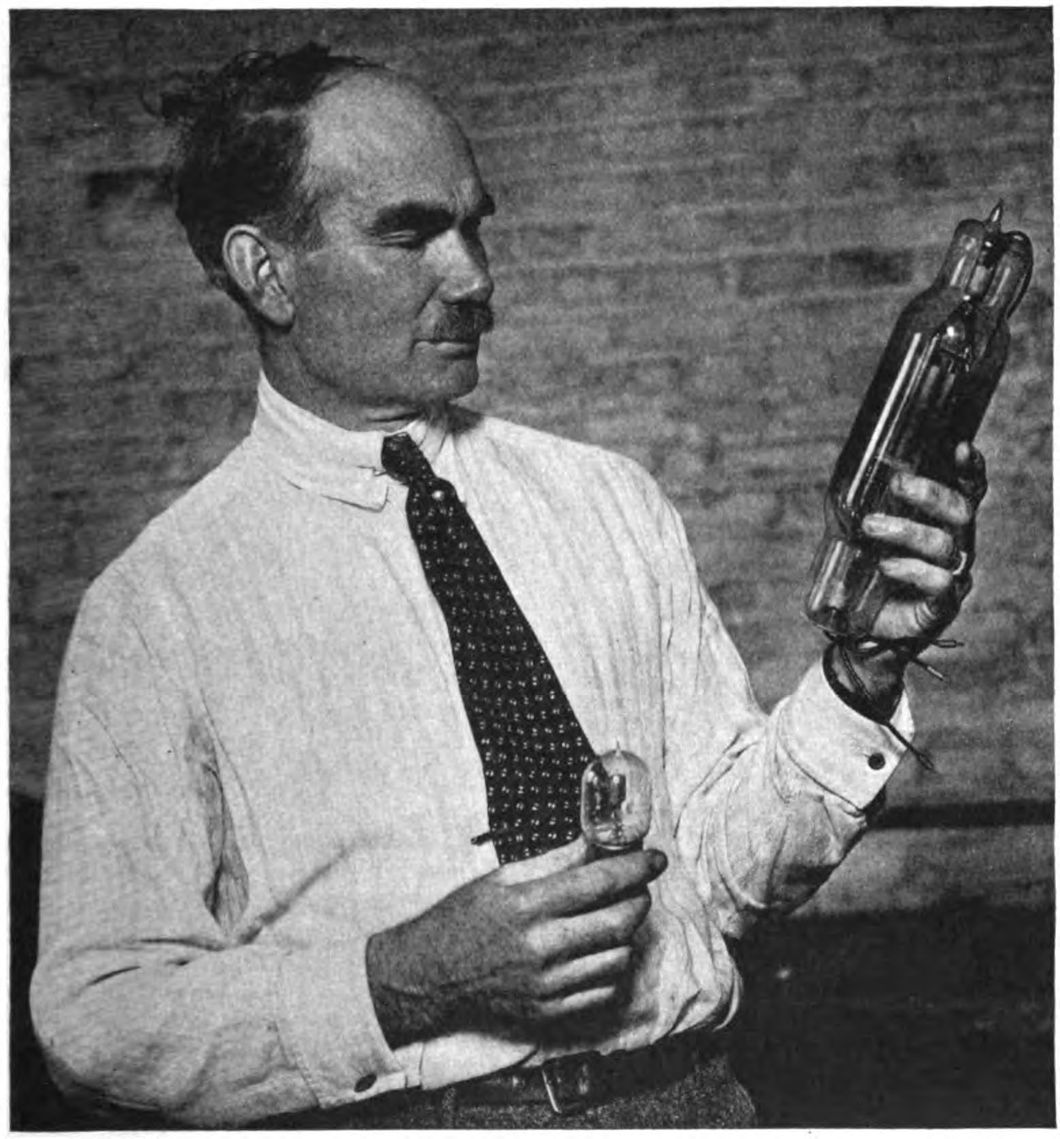The "father of radio," the "grandfather of television," the man who created live radio broadcasting, Lee de Forest was a man who forever changed the history of radio and television. Lee de Forest was born on August 26th of 1873, in Council Bluffs, Iowa. Furthermore, he was the son of a Congregational minister who had a presidential position at Talladega College, a bankrupt school with mostly African Americans. Lucky for Lee, he fit in perfectly as part of the community. Lee's father wanted a career for him in the clergy, but Lee preferred science which led to his enrollment in the Sheffield Scientific School of Yale University in 1893. Within six years, Lee was working many jobs, making the best out of his scholarship and the best out of his allowance from his parents to later achieve his Ph.D. in 1899 in physics.
Around 1899, electricity started to be an interest to Lee, specifically electromagnetic- wave propagation."De Forest's doctoral dissertation on the "Reflection of Hertzian Waves from the Ends of Parallel Wires" was possibly the first doctoral thesis in the United States on the subject that was later to become known as radio" (E. Fielding, Raymond). Lee began to work at the Western Electric Company in Chicago, starting off in the telephone section and leading him to the experimental laboratory. Furthermore, working after hours granted Lee with his first invention, an electrolytic detector of Hertzian waves, which became moderately successful. In 1902, De Forest founded the De Forest Wireless Telegraph Company to allow a new medium of communication to be born and spread to the press, military, businesses, and the people. Wireless telegraphy was the route of creation De Forest took, leading him to create the "Audion" because of his dedication to this new form of communication.
The Audion was a more evolved detector; it had a stronger reception towards wireless signals than Carborundum and electrolytic detectors. Furthermore, in 1907 Lee began to take advantage of his invention by broadcasting music and speech to the people living in the New York City area. Although with his newly made invention, also came the downfalls in Lee's life. He was defrauded twice by business partners, involved in many patent lawsuits, had four unsuccessful marriages, and was indicted for mail fraud, which was later acquitted. Furthermore, Lee fell victim to many failed inventions and had a hard time trying to convey his new medium.
On the contrary, in 1910 was Lee's first broadcast of any sort of performance. Specifically, it was a live performance of opera, sung by Enrico Caruso at the Metropolitan Opera. This broadcast allowed Lee to share his new medium with the general public and to get ideas on how his creation could evolve.
Eventually, by 1912, de Forest began to have many Audion tubes to amplify high-frequency radio signals to far areas. "He fed the output from the plate of one tube through a transformer to the grid of a second, the output of the second tube's plate to the grid of a third, and so forth, which thereby allowed for an enormous amplification of a signal that was originally very weak"(E. Fielding, Raymond). The more modifications the Audion had, the better its impact on radio, as the transmitting and amplification of radio signals towards farther distances grew stronger allowing telephonic distance communication to evolve.
Through the success of his invention, Lee began to create controversy around scientists and attorneys, eventually selling patents to communication firms for further development. Moreover, the American Telephone & Telegraph Company (AT&T) installed audions to amplify voice signals all across the United States of America, changing the development of radio.
In 1921, de Forest began producing audio and recordings for movies. He created a recording system titled "Phonofilm," which led to him starting the "De Forest Phonofilm Corporation." Although the quality of the system was mediocre, the optical recording system was shown in many theaters from 1923 to 1927. His method was put off by many film producers as they rejected his sound-on-film device, because of the evolution of film and the use of talking pictures. Ironically, producers in the past did not want to use De Forests device, because they did not believe in it, but as years passed, movies began to use De Forests method of sound recording and many are still influenced by his methods today.
Overall, Lee De Forest died with over 300 patents and has signified his spot in the history of radio and television and is one of the principal inventors of today. He allowed the ease of amplifying radio signals, coast to coast services to be created all across the world, and is credited for bringing sound to motion pictures.
















